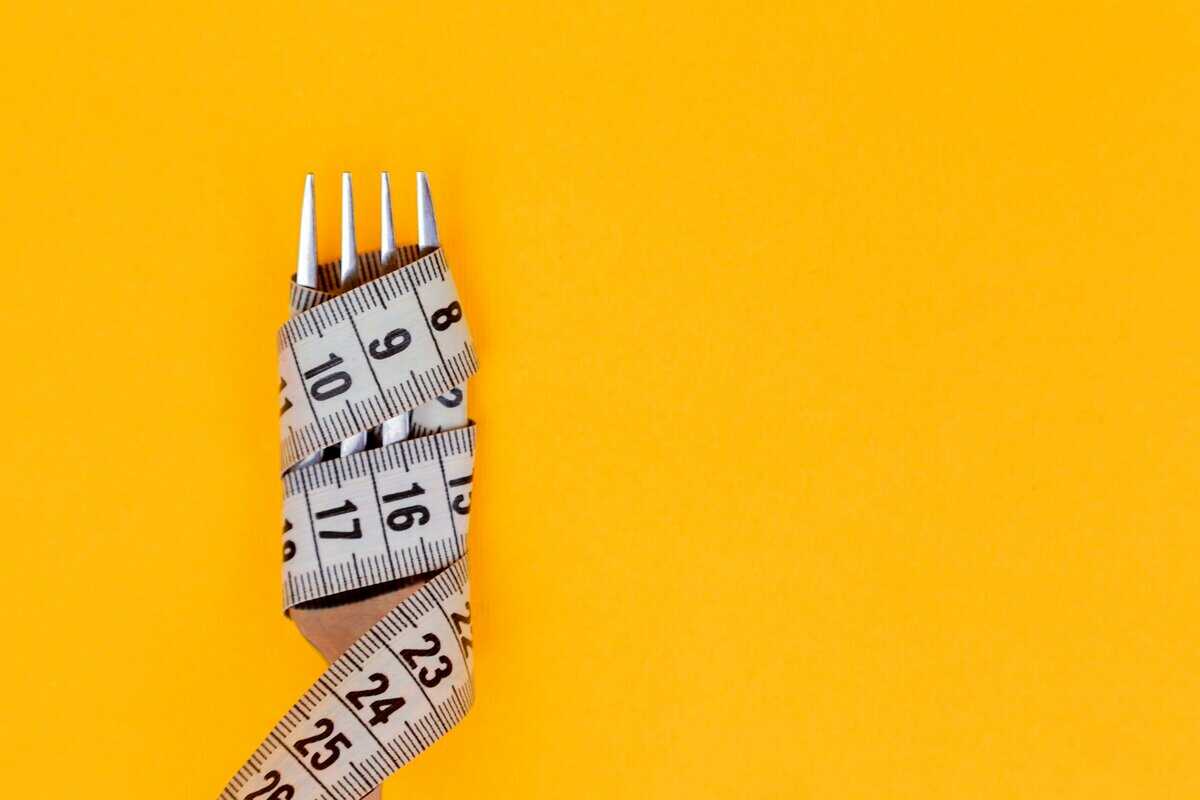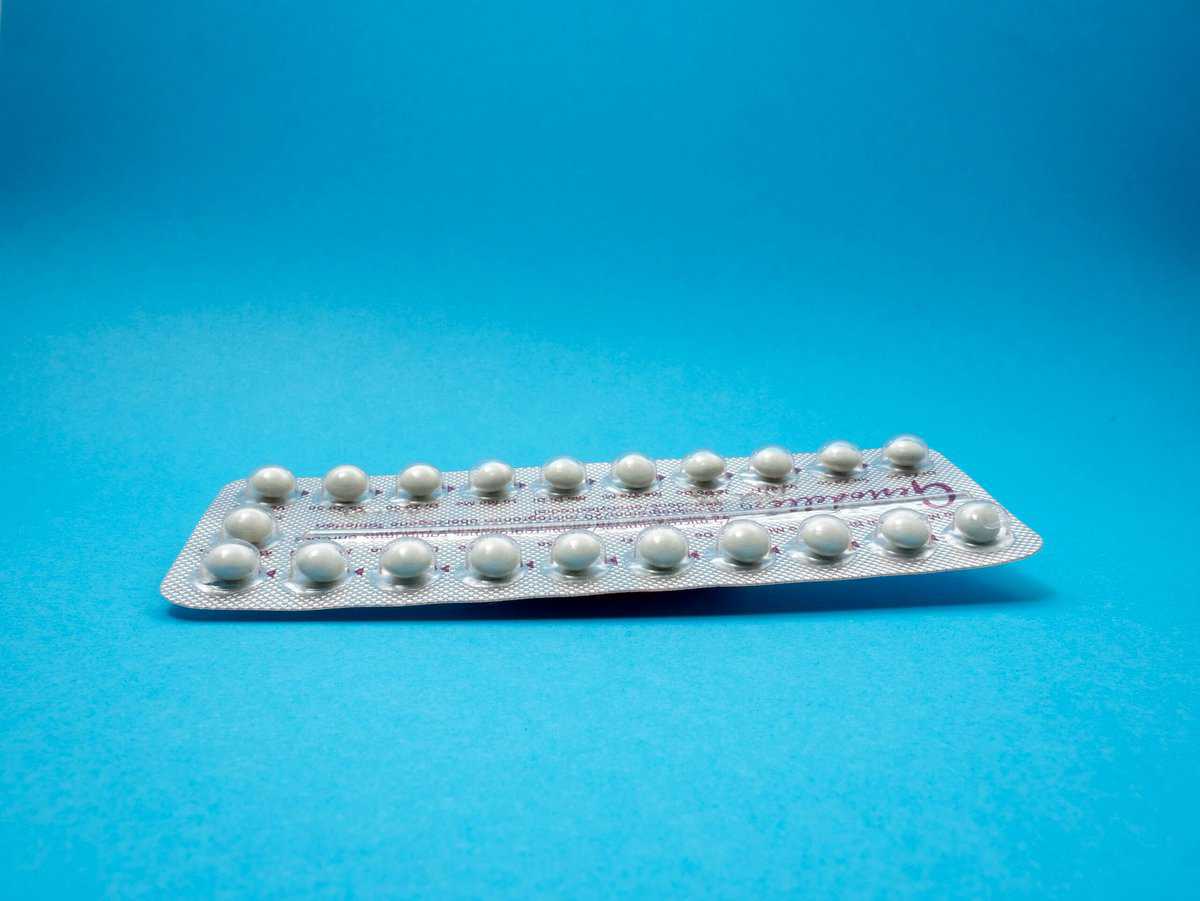A review of the hormone balanced diet, its impact on weight loss, whether or not your hormones are causing weight gain.
As a dietitian, I’ve seen so many claims about the impact of hormones on weight gain, and that a hormone balanced diet through food and supplements is the key to weight loss and a fast metabolism. Yes, these are major claims, but I see so many sensational headlines I never really gave them much thought. That was until recently, when one of my RD colleagues posed a question about the hormone balanced diet in our Facebook support group, revealing that no one really had found any evidence to support them. This piqued my interest to start digging into the real research behind these magical hormone-balancing diets.

While the permutations are endless, we found three prominent metabolism-boosting diets based on balancing certain hormones that may be out of whack. Let’s start by looking at what each hormone balanced diet recommends and what the evidence shows.
The 7-Day Metabolism Boosting Diet
The 7-Day Metabolism Boosting Diet, written by nutritionist Haylie Pomroy, promotes a three-stage program designed to keep your metabolism “guessing.” In this hormone balanced diet, the first 2 days of the week you eat lots of carbs and fruits to “calm” your adrenal glands. Days 3-4 you eat lots of protein and veggies with little carb to release stored fat, and finally, only days 5-7 you eat all of the above with an emphasis on fats and oils.
First, the rationale behind “calming” your adrenal glands in stage one is that your adrenal glands produce the hormone cortisol, which controls blood sugar levels. If you eat lots of carbohydrates, it will reduce the stress on the adrenal glands to produce cortisol. This is referred to as “adrenal fatigue.” The Endocrine Society released a statement that adrenal fatigue is not a real medical condition and that this theory is oversimplifying the complex hormones and pathways of our adrenal glands. Interesting.
Stage two claims that eating lots of protein will release stored fat and build muscle. Let me clear this up, only exercise or lack of energy intake will release stored fat and build muscle. Simply eating protein will not build muscle- if it’s not utilized for energy then it will be stored as fat.
Finally in stage three, there’s an emphasis on “eating fat to burn fat”. This is based on the theory that you need fat to produce thyroid hormone and progesterone because certain hormones (like estrogen and progesterone) are fat soluble (aka. they are made from the fat we eat). But what your body is looking for is a happy medium in fat intake so there is no need to fat-load your diet if you’re worried your hormones are out of whack.

The Hormone Diet
Natasha Turner is a naturopath who has founded The Hormone Diet. This diet again has 3 stages including renew and revitalize, replenish and balance hormones and restore strength, vigour and radiance. These pretty terms translated to taking hormone blood, urine and saliva tests in stage one, and a “prescription” of foods and supplements to balance hormones in stage two. The foods suggested were based on the “glyci-med” diet meaning low glycemic foods with a Mediterranean-eating pattern. The final stage is when an exercise program and toxin-free skin care regime are brought in.
The Hormone Solution
And the last hormone balanced diet we looked at was the The Hormone Solution/30 Day Natural Hormone Plan by Erika Schwartz. Schwartz believes that estrogen dominance from environmental toxins, stress, nutritional deficiencies and estrogen in the food supply causes weight gain. Her plan is based on diet and lifestyle changes, bioidentical hormone therapy and supplements.

Similarities between Hormone Balanced Diet Regimes
All of the diets focused on estrogen, progesterone and cortisol as the major hormones of interest. They all also emphasized an organic eating pattern free from processed meats, alcohol and caffeine. Healthy lifestyle components such as adequate sleep, avoiding stress and exercising regularly seemed to be incorporated into most diets, as well. Overall, these hormone diets claim that hormonal balance will boost your metabolism, decrease bloating, improve mood, increase energy and of course, cause weight loss.
Dietary Component of the Hormone Balanced Diet
It’s important to note that the food portion of these hormone diets is generally very healthy! Despite them being restrictive in some areas (I know I can’t give up my morning coffee), they promote a balanced healthy diet and lifestyle that any dietitian would be cool with. Eating solely organic food is promoted on this diet to avoid consuming hormones or antibiotics. One of the disadvantages I saw was that buying exclusively organic would be coming with a pretty big price tag. This seems like the perfect time to debunk what antibiotics and hormones are used in food production and what this means to the consumer. Growth hormones are only used in cattle produced for beef, not dairy cows or any other animal meant for consumption, so if you wanted to decrease your exposure to growth hormones, you could simply choose organic beef or just eat a little less beef.
Antibiotics are approved for all cows, chicken, turkey, pork and fish and must be Health Canada’s strict guidelines for human and animal safety. The levels of hormones they use are set far below the amount that is determined to pose a possible health concern.

Hormone Testing
Step one of the hormone diet? Take a saliva, urine and/or blood test to see which hormones are “out of balance.” Now, aside of the high cost of taking these tests, which aren’t covered by most health insurance companies, lets dive into the validity of these tests. Most of the studies done on whether estrogen and progesterone are linked with weight loss were done with animal studies, which we know is not great evidence (here, here & here). They showed small promising results that these hormones may be linked to overeating, but even in animal studies, they weren’t conclusive. Personally, I would want to see a bit more solid research before I hopped on board.
Recommended Supplements & Dangers
And what are the recommended supplements for the hormone balanced diet? Hormone replacement therapy is a common recommendation which may contain solely estrogen or in combination with progesterone. This therapy has proven side effects including increased breast cancer risk, cardiovascular risk, and endometrial cancer risk. A large review of the evidence found that the dangers of starting hormone replacement therapy may likely outweigh the benefits, and women must be carefully screened before beginning a trial of hormone therapy.
The second, less aggressive recommended treatment is through bioidentical hormones. This is in form of hormones extracted from wild yams or soy oils that are applied as a cream. Now despite this being a seemingly safe option, there is a lack of evidence to support its effectiveness. It’s important to remember that all of this evidence was focusing mostly on postmenopausal women, not younger adults looking to tweak their metabolism.
Some of the other recommended supplements include: flax, vitamin B, vitamin C, magnesium and calcium. These supplements are all safe if taken below the daily recommended intake, but they’re definitely not necessary for weight loss or metabolism boosting (to see what may help check out this post here).

Hormone Diet Claims Debunked
Let’s get back to the major claims and see what the evidence has to say about them.
Increased metabolism and weight loss are definitely the number one reason people become attracted to trying the hormone diet. The biggest concern right of the bat is their oversimplification of hormones causing weight gain. Hormones and obesity are both extremely complicated and multiple dimensional- science can’t fully explain yet how the two are intertwined. Is there a relationship between these hormones and weight gain? Of course! Do we know the answer on exactly how? Unfortunately, not.
For example, we know our thyroid gland makes two hormones that regulate metabolism through vital function such as heart rate, intestinal speed and body temperature. An underactive thyroid will cause weight gain, and while an overactive thyroid will cause weight loss in addition to hot flashes, hair loss, diarrhea and insomnia. So you can see why we can’t just pump people with these hormones to induce rapid weight loss.
Overall, there isn’t enough good evidence to support a hormone balanced diet will promote weight loss. Claiming that we can “balance” our hormones through supplements and lifestyle changes oversimplifies our complex body processes. It’s not a simple hormone in, hormone out equation.
Now we can talk about the other three claims: decreased bloating, improved mood and increased energy. Now these claims probably are true, why? Because the diet and lifestyle portion, as mentioned earlier, is promoting decreased caloric intake, eating lots of whole food such as fruits, vegetables, proteins and healthy fats and oils. Along with getting some extra hours of sleep and starting to exercise regularly, of course people will be feeling more energetic and less bloated. But again, I want to stress that there isn’t enough evidence to support that the hormone changes are having any effect on these.

Hormone Diet Take Home Messages
- I would definitely recommend the food and lifestyle component of most of these hormone diets as they’re balanced and healthy- keep snackin’ on those whole foods!
- The hormone medical testing and buying only organic food will be very costly, and the rationale isn’t backed up scientifically.
- Hormone and antibiotic levels in animal products are regulated at safe levels for both the animals and people as regulated by Health Canada
- The cocktail of supplements and hormone therapies have not been fully studied for a healthy population looking to lose weight and therefore are not recommended.
- Your hormones are affected by more than diet and lifestyle, our bodies are a complicated and intertwined with many systems working together. We just don’t have the answers yet on the direct connections between hormones and weight gain.
Contribution by AK Dietetic Intern Tiffany Schebesch
More Blog Posts You Might Like
- Insulin and Weight Gain: Is Insulin a Fat Storage Hormone?
- Seed Cycling for Fertility: Does it Actually Work?
- The Hormonal Acne Diet: The Best Foods for Healthy Clear Skin
- Diet for PCOS: How to Manage Symptoms
Now tell me, lovelies- what has helped you with balancing hormones? Leave me a comment below!
Updated on December 31st, 2022

Abbey Sharp is a Registered Dietitian (RD), regulated by the Ontario College of Dietitians. She is a mom, YouTuber, Blogger, award winning cookbook author, media coach specializing in food and nutrition influencers, and a frequent contributor to national publications like Healthline and on national broadcast TV shows.





Leave a Comment